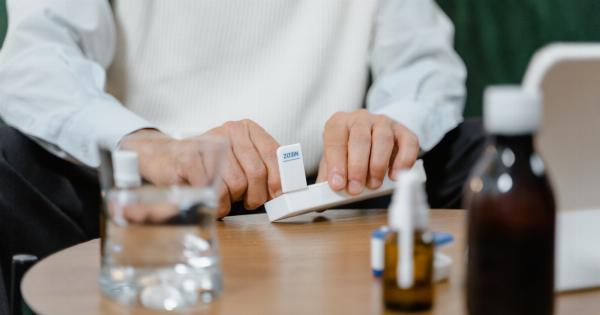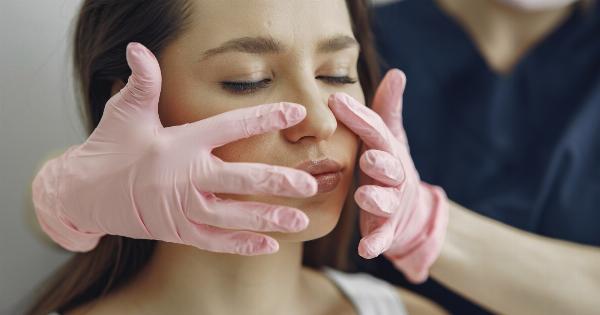Unveiling a clear, even-toned complexion can give a significant boost of confidence and make us feel ready to conquer the world. However, the presence of skin discoloration can often dampen our spirits and leave us feeling self-conscious.
Whether it is caused by hyperpigmentation, melasma, or sun damage, there are effective solutions available to tackle this common skin concern head-on. In this article, we will explore various treatment options and skincare tips that will help you bid farewell to discoloration once and for all.
The Causes of Skin Discoloration
Before we delve into the remedies, let’s first understand the culprits behind skin discoloration. Identifying the cause will allow us to tailor our approach to effectively address the issue at hand.
1. Hyperpigmentation.
Hyperpigmentation occurs when the skin produces excess melanin, resulting in dark patches or spots. It can be induced by acne scars, hormonal changes, inflammation, or injury to the skin. People with darker skin tones are more prone to hyperpigmentation.
2. Melasma.
Melasma manifests as gray-brown patches on the face and is primarily triggered by hormonal changes, such as those experienced during pregnancy or while taking birth control pills.
3. Sun Damage.
The harmful UV rays emitted by the sun can cause an array of skin concerns, including discoloration. Prolonged sun exposure can lead to sunspots, freckles, and overall uneven pigmentation.
Treatment Options: Routes to Radiant Skin
1. Topical Treatments
Topical treatments are often the first line of defense against skin discoloration. These products contain active ingredients that target specific pigment-related pathways, effectively lightening and brightening the skin.
Popular ingredients to look out for in topical treatments include:.
• Hydroquinone
Hydroquinone is a potent skin bleaching agent that lightens dark spots by impeding the production of melanin. It is commonly available as an over-the-counter product but can also be prescribed in higher concentrations by a dermatologist.
• Retinoids
Retinoids, such as retinol and tretinoin, are derived from vitamin A and are known for their ability to improve a variety of skin concerns, including discoloration.
They work by speeding up the skin cell turnover rate, promoting the growth of new, healthy cells, and fading existing pigmentation.
• Vitamin C
Vitamin C is a powerful antioxidant that inhibits the production of melanin and helps to brighten the skin. It also protects the skin from oxidative stress caused by free radicals, further preventing the formation of dark spots.
2. Chemical Peels
Chemical peels involve the application of a chemical solution onto the skin, causing controlled exfoliation and shedding of the topmost layer. This process reveals fresh, rejuvenated skin with a more even tone.
The strength and type of chemical peel will depend on the severity of the discoloration and the individual’s skin type. Superficial peels, such as those containing glycolic or salicylic acid, are effective for mild discoloration.
For more stubborn pigmentation, a medium or deep peel, like a TCA peel, may be recommended by a skincare professional.
3. Laser Therapy
Laser therapy has gained popularity in recent years as an effective treatment for various skin concerns, including discoloration.
It works by targeting the excess melanin and breaking it down into smaller particles, which are then naturally eliminated by the body.
There are different types of laser treatments available, such as:.
• Intense Pulsed Light (IPL)
IPL uses broad-spectrum light to target and reduce discoloration. It is particularly effective for sunspots and age spots caused by sun damage.
• Fractional Laser
Fractional laser treatments create microscopic columns of injury in the skin, stimulating collagen production and replacing damaged cells with new ones. This improves overall skin texture and tone, including reducing the appearance of discoloration.
• Q-Switched Laser
Q-Switched lasers emit short, high-energy pulses of light that break up pigmented lesions, reducing their appearance. They are often used to treat melasma and stubborn or deep-set pigmentation.
4. Microneedling
Microneedling, also known as collagen induction therapy, involves using a device with fine needles to create controlled micro-injuries on the skin’s surface.
This stimulates collagen production and enhances the absorption of topical treatments, helping to reduce discoloration.
The procedure can be combined with the application of serums or platelet-rich plasma (PRP) for even better results. It is suitable for all skin types and provides gradual improvement in skin tone and texture.
Skincare Tips for Continued Success
While undergoing professional treatments is highly effective in reducing discoloration, consistent and proper skincare practices are essential for maintaining the results. Here are some tips to maximize the benefits of your treatments:.
1. Sun Protection
The sun is one of the leading causes of discoloration, so protecting your skin from harmful UV rays is crucial. Apply a broad-spectrum sunscreen with an SPF of 30 or higher daily, even on cloudy days.
Reapply every two hours, especially if you are spending time outdoors.
2. Gentle Cleansing
Avoid harsh cleansers that can strip away the skin’s natural oils and disrupt its barrier. Opt for gentle cleansers that cleanse without causing irritation or inflammation, as these can aggravate discoloration.
3. Exfoliation
Regular exfoliation helps to remove dead skin cells and improve the penetration of topical treatments. However, be cautious not to over-exfoliate, as this can irritate the skin and worsen pigmentation.
Choose exfoliants with gentle ingredients, such as alpha-hydroxy acids (AHAs) or enzymes.
4. Moisturize Daily
Hydrated skin is better equipped to repair and rejuvenate itself. Choose a moisturizer that suits your skin type and contains ingredients like hyaluronic acid or ceramides to lock in moisture and support skin barrier function.
5. Serums and Corrective Treatments
Incorporate serums or spot treatments with active ingredients, such as vitamin C, niacinamide, or arbutin, into your skincare routine. These targeted products can complement your professional treatments and help fade discoloration over time.
Mission Accomplished: Embrace Your Radiant Skin
By understanding the causes of skin discoloration and adopting a comprehensive approach to treatment, you can bid farewell to uneven skin tone and welcome a radiant complexion.
From topical treatments to professional procedures and consistent skincare practices, the journey towards a clear, even-toned complexion is within reach. Embrace your skin’s natural beauty and step confidently into the world, knowing that you have accomplished your mission of banishing discoloration for good.






























